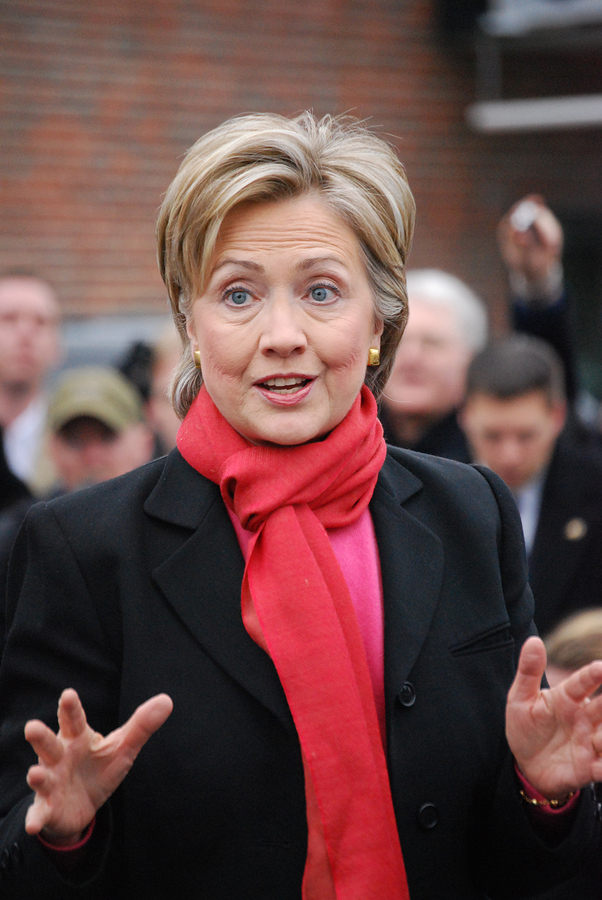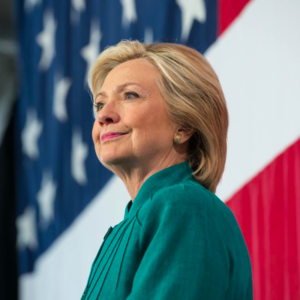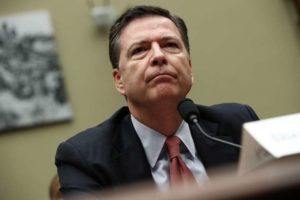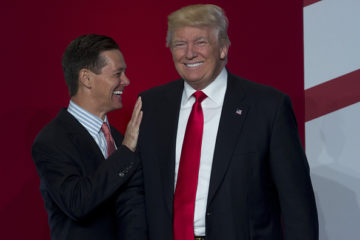So now, What’s the Deal with Hillary and these Emails? : A Well Thought Out Scream by James Riordan

So we’ve all heard about Hillary Clinton being in trouble because she used a private server to send and receive government emails. I’m sure most of us would nod smugly if the subject was broughtup in our presence. I’m also pretty sure that less than a tenth of us have a clue as to what the problem really was. Oh, we know that everything with the government needs to be secret and, like the Cohen Brothers so aptly demonstrated in their film, Burn After Reading, it’s not a good idea to leave Top Secret files at the gym. When you’re the Secretary of State of the most powerful nation in the world you have to realize that there are a lot of nasty people who would like to have access to your emails in hopes of selling that information to other even nastier people. And, for most people, that is about the extent of what the fuss is all about.
But, once the content of some of the emails became known, the issue was raised about whether or not certain contributors to the non profit Clinton Foundation received favorable treatment from the State Department under Hillary Clinton. Well, one thing that has really contributed to said fuss is, like many things in government, a dispute between two different departments. Initially, the senior officials in the FBI and the Justice Department agreed that there wasn’t much evidence that Clinton Foundation contributors received special treatment from the State Department, but then a few of the actual investogators claimed they had promising leads their bosses wouldn’t let them pursue.
FBI Director James Comey
This eventually led FBI Director James Comey’s disclosure to Congress that new emails had emerged that could be relevant to a separate, previously closed FBI investigation of Mrs. Clinton’s email arrangement while she was secretary of state. Secret recordings of a suspect talking about the Clinton Foundation fueled an internal battle between FBI agents who wanted to pursue the case and corruption prosecutors who viewed the statements as worthless hearsay.
Agents, using informants and recordings from unrelated corruption investigations, thought they had found enough material to merit aggressively pursuing the investigation into the foundation that started in summer 2015 based on claims made in a book by a conservative author called “Clinton Cash: The Untold Story of How and Why Foreign Governments and Businesses Helped Make Bill and Hillary Rich.”
Beginning in February and continuing today, investigators from the Federal Bureau of Investigation and public-corruption prosecutors became increasingly frustrated with each other. At the center of the tension stood the U.S. attorney for Brooklyn, Robert Capers, who some at the FBI came to view as exacerbating the problems by telling each side what it wanted to hear, these people said. Through a spokeswoman, Mr. Capers declined to comment.
On Wednesday, President Barack Obama took the unusual step of criticizing the FBI when asked about Mr. Comey’s disclosure of the emails.
Amid the internal finger-pointing on the Clinton Foundation matter, some have blamed the FBI’s No. 2 official, deputy director Andrew McCabe, claiming he sought to stop agents from pursuing the case this summer. His defenders deny that, and say it was the Justice Department that kept pushing back on the investigation. At times, people on both sides of the dispute thought Mr. Capers agreed with them. Defenders of Mr. Capers said he was straightforward and always told people he thought the case wasn’t strong.
Much of the skepticism toward the case came from how it started—with the publication of a book suggesting possible financial misconduct and and self-dealing surrounding the Clinton charity. The author of that book, Peter Schweizer—a former speechwriting consultant for President George W. Bush—was interviewed multiple times by FBI agents, people familiar with the matter said.
The Clinton campaign has long derided the book as a poorly researched collection of false claims and unsubstantiated assertions. The Clinton Foundation has denied any wrongdoing, saying it does immense good throughout the world. Mr. Schweizer said in an interview that the book was never meant to be a legal document, but set out to describe “patterns of financial transactions that circled around decisions Hillary Clinton was making as secretary of state.”
As 2015 came to a close, the FBI and Justice Department had a general understanding that neither side would take major action on Clinton Foundation matters without meeting and discussing it first. In February, a meeting was held in Washington among FBI officials, public-integrity prosecutors and Leslie Caldwell, the head of the Justice Department’s criminal division. Prosecutors from the Eastern District of New York—Mr. Capers’ office—didn’t attend, these people said.
The public-integrity prosecutors weren’t impressed with the FBI presentation, people familiar with the discussion said. “The message was, ‘We’re done here,’ ” a person familiar with the matter said. Following the February meeting, officials at Justice Department headquarters sent a message to all the offices involved to “stand down,’’ a person familiar with the matter said. Justice Department officials became increasingly frustrated that the agents seemed to be disregarding or disobeying their instructions.
Within the FBI, some felt they had moved well beyond the allegations made in the anti-Clinton book. At least tw o confidential informants from other public-corruption investigations had provided details about the Clinton Foundation to the FBI, these people said. The FBI had secretly recorded conversations of a suspect in a public-corruption case talking about alleged deals the Clintons made, these people said. The agents listening to the recordings couldn’t tell from the conversations if what the suspect was describing was accurate, but it was, they thought, worth checking out.
o confidential informants from other public-corruption investigations had provided details about the Clinton Foundation to the FBI, these people said. The FBI had secretly recorded conversations of a suspect in a public-corruption case talking about alleged deals the Clintons made, these people said. The agents listening to the recordings couldn’t tell from the conversations if what the suspect was describing was accurate, but it was, they thought, worth checking out.
Prosecutors thought the talk was hearsay and a weak basis to warrant aggressive tactics, like presenting evidence to a grand jury, because the person who was secretly recorded wasn’t inside the Clinton Foundation. FBI investigators grew increasingly frustrated with resistance from the corruption prosecutors, and some executives at the bureau itself, to keep pursuing the case.
As prosecutors rebuffed their requests to proceed more overtly, those Justice Department officials became more annoyed that the investigators didn’t seem to understand or care about the instructions issued by their own bosses and prosecutors to act discreetly. In subsequent conversations with the Justice Department, Mr. Capers told officials in Washington that the FBI agents on the case “won’t let it go,” these people said.
As a result of those complaints, these people said, a senior Justice Department official called the FBI deputy director, Mr. McCabe, on Aug. 12 to say the agents in New York seemed to be disregarding or disobeying their instructions, these people said. The conversation was a tense one, they said, and at one point Mr. McCabe asked, “Are you telling me that I need to shut down a validly predicated investigation?’’ The senior Justice Department official replied: ”Of course not.”
Ultimately, the emails from Mrs. Clinton’s private server were only partially examined. The FBI could not review all of the emails under investi-gation because:
- The Clintons’ Apple personal server used for Hillary Clinton work email could not be located for the FBI to examine.
- An Apple MacBook laptop and thumb drive that contained Hillary Clinton email archives were lost, and the FBI couldn’t examine them.
- 2 BlackBerry devices provided to FBI didn’t have their SIM or SD data cards.
- 13 Hillary Clinton personal mobile devices were lost, discarded or destroyed. Therefore, the FBI couldn’t examine them.
- Various server backups were deleted over time, so the FBI couldn’t examine them.
- After State Dept. notified Hillary Clinton her records would be sought by House Benghazi Committee, copies of her email on the laptops of her attorneys Cheryl Mills and Heather Samuelson were wiped with BleachBit, and the FBI couldn’t review them.
- After her emails were subpoenaed, Hillary Clinton’s email archive was also permanently deleted from her then-server “PRN” with BleachBit, and the FBI couldn’t review it.
- Also after the subpoena, backups of the PRN server were manually deleted.
Even though the FBI did not have a complete record of Hillary Clinton’s emails on three unclassified personal servers, it found:
- 2,093 emails State Dept. currently classifies as Confidential or Secret. (State Dept. did not address what their classification was at the time they were sent.)
- 193 emails (81 separate email conversations) that were classified at the time they were sent, ranging from “Confidential” to “Top Secret/Special Access Program.”
- 68 of the 81 email chains remain classified today.
- 8 were Top Secret.
- 37 were Secret.
- 36 were Confidential.
- 7 were Special Access Program.
- 3 were Sensitive Compartmentalized Information.
- 36 were Not Releasing to Foreign Governments.
- 2 were Releasable Only to Five Allied Partners.
- 12 of the suspect email chains were not provided by Hillary’s attorneys. The FBI found them other ways.
- The email chains contained classified information from 5 other agencies: CIA, DOD, FBI, NGA and NSA.
The FBI has also found emails related to Hillary Clinton’s tenure as secretary of state on the laptop belonging to the estranged husband of Huma Abedin, Anthony Weiner, according to a U.S. official. These emails, CBS News’ Andres Triay reports, are not duplicates of emails found on Secretary Clinton’s private server. At this point, however, it remains to be seen whether these emails are significant to the FBI’s investigation into Clinton. It is also not known how many relevant emails there are.
In a letter to Congress last Friday, FBI Director James Comey indicated that the agency was taking steps to review newly discovered emails relating to Clinton’s private email server. Those emails came from the laptop of Weiner, a former New York congressman. Abedin reportedly said she had no knowledge of the existence of any of her emails on Weiner’s laptop. On Monday, CBS News reported that the FBI had obtained a warrant for the emails.
In a separate matter, CBS News confirmed that there were disagreements between FBI agents looking into the Clinton Foundation and their superiors in Washington and at the Department of Justice. The Wall Street Journal reported Wednesday that the FBI was facing an “internal feud” over how to handle the Clinton Foundation case in the middle of election season. Officials say tension like this is common in many cases. It is still unclear whether the FBI inquiry into the Clinton Foundation was a full-blown investigation. The current status of that inquiry is also unclear. However, no known charges have been filed related to the foundation.
 In a stunning last-minute announcement, FBI director James Comey said Sunday the agency is still not recommending charges against Democratic presidential nominee Hillary Clinton after reviewing newly discovered emails.
In a stunning last-minute announcement, FBI director James Comey said Sunday the agency is still not recommending charges against Democratic presidential nominee Hillary Clinton after reviewing newly discovered emails.
In a letter to lawmakers, Comey said the FBI is standing by its original findings, made in July, that Clinton should not be prosecuted for her handling of classified information over email as secretary of State.
“The FBI investigative team has been working around the clock to process and review a large volume of emails from a device obtained in connection with an unrelated criminal investigation,” Comey said in the letter. “During that process we reviewed all of the communications that were to or from Hillary Clinton while she was secretary of State,” Comey wrote. “Based on our review, we have not changed our conclusions that we expressed in July with respect to Secretary Clinton.”
Comey had rocked the presidential race with his announcement Oct. 28 that the FBI had uncovered a new trove of emails that might be relevant to the investigation of Clinton’s use of a private email server. The emails were discovered on the computer of Anthony Weiner, the estranged husband of Clinton aide Huma Abedin.
The announcement, as voters prepare to head to the polls Tuesday, added more drama to an already turbulent campaign season.
So………………is that all clear? The details of the investigation makes one wonder why anyone bothers. It’s like the five blind men who each touched an elephant — no one said the same thing and the complete picture was incomprehensible. Welcome to government.
___








No Comment